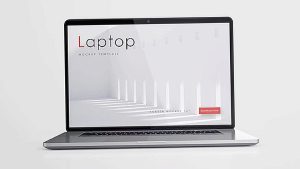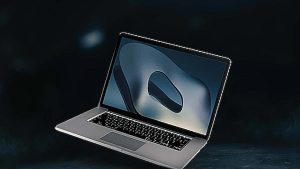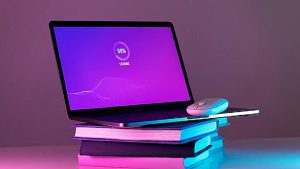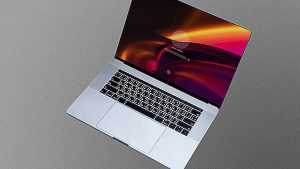Why your laptop is slow and how to fix it: Your laptop may begin to sluggish or stop responding completely when you load up more data, applications, and programs on it. Although these problems don’t appear right away, continued usage, taxing software upgrades, and aging computer components can slow down your laptop over time and degrade its efficiency, making it more difficult to carry out daily duties.
There are several ways to speed up a Windows laptop if it isn’t operating as quickly as it once did. Here are the most frequent causes of sluggish performance on Windows laptops, along with solutions.
Also see: Drug Abuse Causes, Effects And Solutions
7 Reasons Why your laptop is slow and how to fix it
1. Programs running in the background must be stopped: One of the simplest fixes for a sluggish laptop is to close as many apps as you can. Nevertheless, some applications go on running in the background even after you close them. These apps can chew up your processing power, which can slow your laptop down.
The fix: You may use Windows Task Manager to close apps operating in the background. To accomplish this, choose Task Manager by pressing Ctrl + Alt + Delete on your keyboard. Then, be sure to select More information in the bottom-left corner to see which applications are consuming the CPU, RAM, and other resources of your computer.

You may view which apps are utilizing the most resources by clicking the header of any column after selecting the Process tab in the top-left corner of the screen. To force an application to close, choose it and click End Task in the bottom-right corner of the window.
However, there can be certain background processes that are essential for your laptop to perform correctly. Therefore, be sure you understand a program before deciding to force it to close.
2. Your startup programs are overly many: If you have too many apps open when you start the computer, your laptop may be running slowly. Every time you switch on your computer, these apps will launch automatically and run until you turn it off, slowing down everything in the process.

The fix: Press Ctrl, Alt, and Delete on your keyboard and choose Task Manager to see which apps are starting when your laptop turns on. Next, select the Startup tab at the window’s top. In the bottom right corner of the window, choose the application you want to disable, then click OK.
You can also view which programs are slowing down your laptop the most by clicking the heading of the Startup Impact column. Close any open apps before shutting off your computer to speed up the booting process even further. By doing this, you can prevent programs from attempting to launch each time you turn on your laptop.
3. Update your operating system today: You can be missing out on new driver updates and software fixes if you haven’t updated your operating system in a while. As a result, your laptop may run more slowly and you may be exposed to security flaws that hackers may use to infect your system.
The solution: Open Settings on your keyboard by pressing Windows + I, and then check to see if your OS needs to be updated. Once Update & Security has been chosen, click Check for updates, and if any updates are found, click Download.

In order for the modifications to take effect, you will then need to restart your laptop. If you want to do this once the update files have finished downloading, click Restart Now.
Windows typically releases significant feature upgrades twice each year. On the other hand, patches are published each month to address issues and enhance security. Check to determine whether your system is up to date if your laptop seems to be operating slower than normal.
Recommended: 8 Advantages and Disadvantages of Being a Woman/Girl
4. Malware has infiltrated your laptop: Your computer may be infected with malware (malicious software) if you notice pop-up advertisements on your laptop or if apps are abruptly crashing. When you open emails from unknown senders or download files from dubious websites, your computer may become infected.
Your laptop may slow down for a variety of reasons due to numerous types of infection.

Some viruses can propagate to other applications and files on your computer by infecting the memory of your laptop. Malware is another tool that hackers might use to steal your personal data, including bank account information.
The solution: Click the magnifying glass image in the bottom-left area of the display to remove spyware from your computer. Then click Open after entering Security in the search box. Click Quick scan after choosing Virus & threat protection. A commercial antivirus application can also be installed if you want even more security.
5. You’ve got too many temporary files: Every time you create or alter a file, temporary copies are saved on your laptop. These files often have names that conclude in “.tmp” or that begin with a dollar sign or tilde. Typically, temporary files are erased when you exit a program or application. Your laptop does not always automatically remove these data, though. They may therefore consume space on your hard disk and slow down your laptop. You may manually erase temporary files to avoid this.
The solution: Click the magnifying glass icon in the bottom-left corner of your screen to erase temporary files from your laptop.

Next, enter “disk cleanup” into the search box, then press “Open.” Click OK after selecting the drive you wish to clean in the pop-up box that displays. Last but not least, choose Temporary files and click the OK button. Additionally, you may erase downloads, temporary internet files, and other things from here. To get rid of extra temporary files, you may also choose Clean up system files.
6. Fragmented files are causing your laptop to run slowly: A portion of the data in each file you create, delete, or change on your computer becomes fragmented. This means that different areas of your hard disk are used to store separate file fragments. Because your drive needs to search around to find each piece of data, this might cause your laptop to slow down over time.

You may defragment your computer to arrange and condense the data on your disks. Additionally, Windows 10 defragments files automatically once per week, but you may also do this by hand at any time. If your laptop has an SSD, you do not need to defragment your disk.
The solution: Click the magnifying glass icon in the bottom left corner of your screen to defrag a disk. Then click Open after entering “Defrag” in the search box. Click Optimize after Analyze in the pop-up box.
It’s crucial to wait until the disk is completely fragment-free before running applications or accessing data. Only if it is listed under Media type as a “hard disk drive” should you defrag your drive, though. Defragging your disk can really wear out your drive and slow down your computer if it is marked as a solid-state drive.
Recommended: Most Famous People In The World 2023: Top 15 Popular
7. You should upgrade your hard drive: Consider switching to a new solid-state drive (SSD) if you’re still utilizing a conventional hard disk drive (HDD). Because it uses physical disks to store data, an HDD normally only lasts for three to five years, whereas an SSD has no moving parts.

As a result, an SSD can read and write data far more quickly than an HDD. Additionally, SSDs are quieter and use less power than HDDs. Check read our page here to learn more about the distinctions between SSD and HDD.
The solution:Many modern laptops include vacant M.2 slots that make it simple to add an SSD. These small hard disks can be installed with just a screwdriver. You may even leave your old HDD attached and use it as a backup disk if your laptop has an available M.2 slot.
It might be challenging to find out how to replace your hard drive if your laptop doesn’t have an empty M.2 slot, though. It is preferable to refer to your user’s manual or search up the instructions online to learn how to replace the hard disk in your laptop.
Recommended: History And Origin Of The Igbo Tribe (With Pictures)
Conclusion
You’ll undoubtedly want to maintain your computer’s peak performance once you’ve cleaned it up by using some of the aforementioned advice. It’s a good idea to plan a monthly cleaning to prevent becoming annoyed with subpar performance. You’re good to go if you use the list of suggestions above as a convenient checklist.

Edeh Samuel Chukwuemeka, ACMC, is a lawyer and a certified mediator/conciliator in Nigeria. He is also a developer with knowledge in various programming languages. Samuel is determined to leverage his skills in technology, SEO, and legal practice to revolutionize the legal profession worldwide by creating web and mobile applications that simplify legal research. Sam is also passionate about educating and providing valuable information to people.